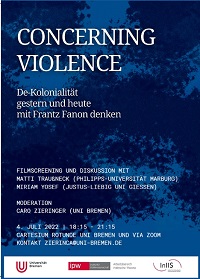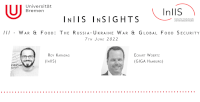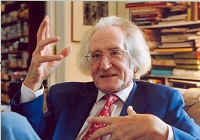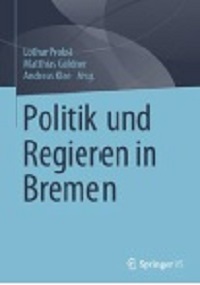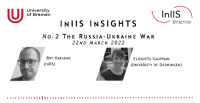Please submit your abstract by 30 April 2022 You find the Call or Chapters here (PDF).
If you would like to propose a chapter, please submit an abstract of max. 250 words and a short (200 word) academic bio by 30 April 2022 to: masculinitieshandbook@gmail.com.
Call for Chapters: “Routledge Handbook of Masculinities, Conflict and Peacebuilding”
We are inviting abstracts for chapter submissions for the Routledge Handbook of Masculinities, Conflict and Peacebuilding. The Handbook is under contract with Routledge’s International Handbook series, and will be co-edited by Henri Myrttinen, Farooq Yousaf, Chloé Lewis, Elizabeth Laruni, Philipp Schulz and Heleen Touquet.
Rationale:
While emerging scholarship on gender and peacebuilding has understandably and importantly centred the experiences, vulnerabilities and needs of women and girls, recent years have also witnessed increasing attention to men and masculinities in relation to armed conflict and peacebuilding processes. This growing body of literature has to date been characterized by an equally understandable emphasis on violent and militarised masculinities in conflict and peace studies, given the harm they do and their prevalence.
The handbook seeks to widen academic debates on men and masculinities in conflict- affected societies and peacebuilding processes. It explicitly seeks to go beyond the scope of military/militarised masculinities, focusing instead more broadly on different aspects and facets of masculinities - in particular civilian and non-combatant ones - in the context of conflict and peacebuilding. It takes an approach that combines de-colonial, intersectional and critical feminist and peace studies approaches. Such an approach provides the tools to go beyond direct, physical, conflict-related violence to examine less visible forms of violence and power, as well as other ways in which masculinities interact with conflict and peace.
Applying critical feminist and critical studies of men and masculinities methodologies can help capture the complexity of power relations involved in peacebuilding, including between different men and masculinities, and how these are informed by other factors such as class, age, ethnicity, sexual orientation and so on. Doing so, this volume both broadens and deepens understandings of conflict and peacebuilding by providing a more complex and complete picture of the gendered tapestries of conflict, peace and the spaces in between.
Our aim is to broaden the understanding of men and masculinities, of their relation to violence and non-violence, to conflict and peacebuilding and thus ‘finding the cracks that let the light in’ in terms of overcoming patriarchy and militarisation, to paraphrase Brandon Hamber (2016). Moving beyond merely examining men’s violences does however not mean ignoring these, or being oblivious to the multitude of other ways in which men and masculinities tend to be privileged in societies the world over.
Call for Contributions:
The handbook is structured along six sections:
1.) Theoretical framings on gender, masculinities, conflict and peace (including questining binaries of conflict/peace, examining queer and de-colonial perspectives)
2.) Masculinities, negotiating peace and managing conflict (e.g. masculinities in disarmament processes, ceasefire monitoring or peace negotiations)
3.) Masculinities and dealing with everyday long-term impacts of conflict (e.g. masculinities and conflict-related trauma or disabilities)
4.) Masculinities, protracted conflict and ‘neither war nor peace’ (e.g. masculinities under military occupation, masculinities and endemic armed violence, indigenous masculinities and settler colonialism)
5.) Transforming masculinities (e.g. working with men to prevent violence and promote gender equality)
6.) Policy and masculinities in conflict and peacebuilding (e.g. masculinities in Women, Peace and Security policy or foreign policy)
Submissions for chapter proposals are expected to directly speak to and engage with these thematic subject areas. We welcome a broad range of proposals on a range of issues related to the overall theme of masculinities, peacebuilding and conflict, and are specifically looking for chapters that focus on the following topics:
- Indigenous masculinities
- Men, masculinities and conflict-related trauma
- Masculinities and conflict-related disabilities
- Masculinities and protracted occupation
- Civilian resistance and masculinities
- Masculinities and remnants of war
- Privileged masculinities and peace settlements
We are particularly interested in receiving submissions with a focus on and written by scholars from the Global South, including regions often under-represented in conflict and peace research, such as Oceania/Pacific, the Caribbean or Central Asia. We also strongly encourage Global North authors to collaborate with Global South colleagues.
If you would like to propose a chapter, please submit an abstract of max. 250 words and a short (200 word) academic bio by 30 April 2022 to: masculinitieshandbook@gmail.com.
Decisions will be made and communicated by mid-May 2022. Chapters are expected to be around 6000 words (including references); first chapter drafts are due by 1 October 2022. There will be an author workshop, preliminary scheduled for November/December 2022, and final chapters are due by 1 March 2023. The handbook is expected to be published in early 2024.
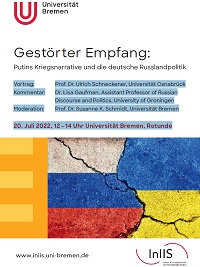 Poster "Gestörter Empfang"
Poster "Gestörter Empfang"


